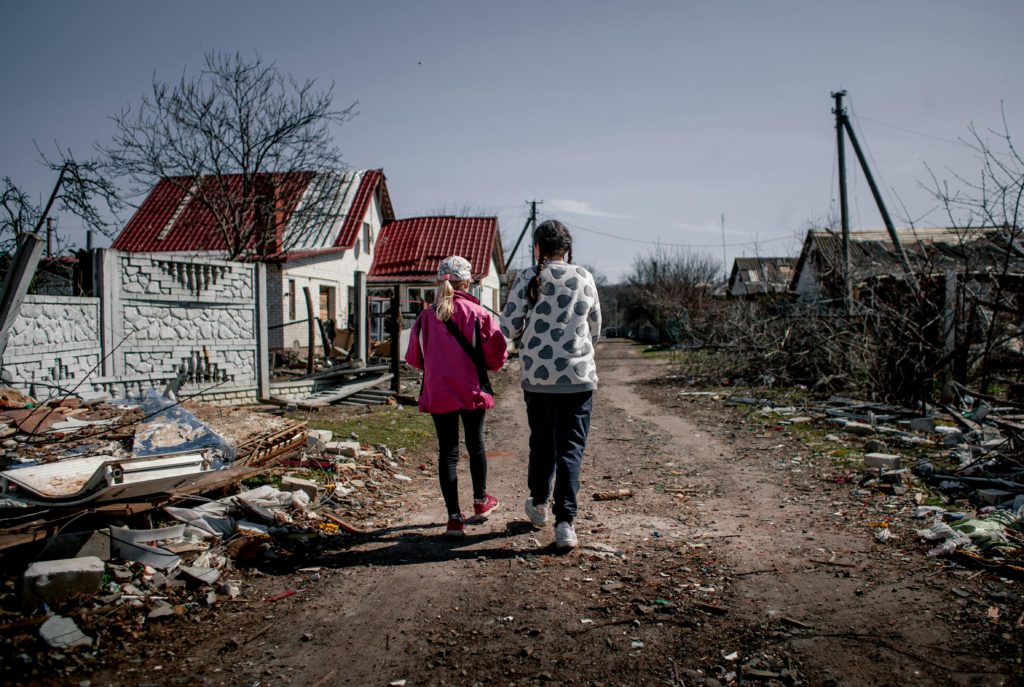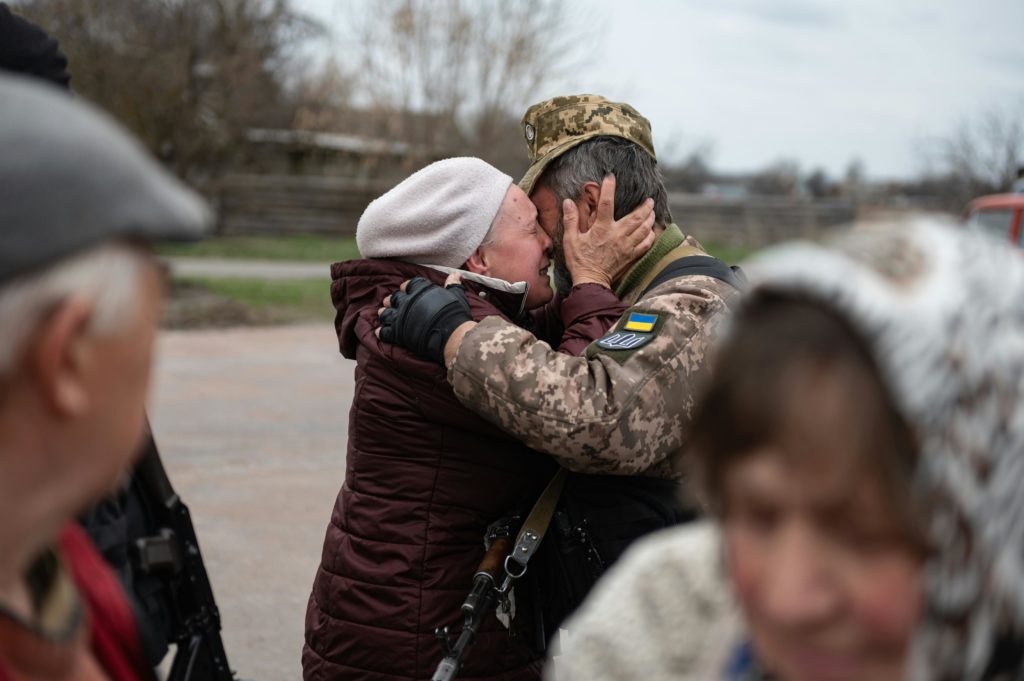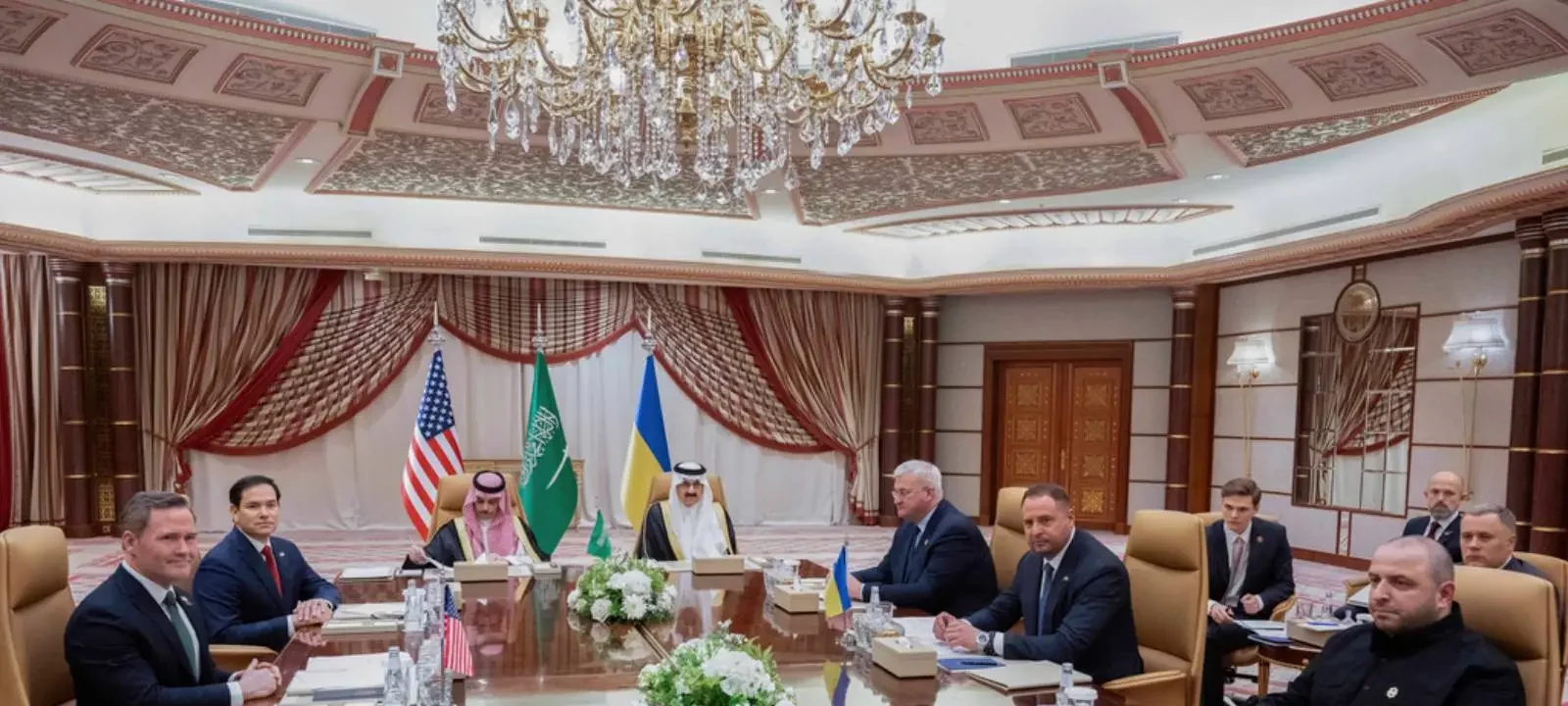Preparing for Negotiations on the War in Ukraine
The prospect of negotiations to end the war in Ukraine starting soon has become more likely over the past three weeks, particularly following US-Ukraine talks in Jeddah this week. This blog explores entry points for preparing for comprehensive peace negotiations that can give rise to just and lasting peace in Ukraine.
Events surrounding the war in Ukraine have come thick and fast over the past three weeks, with significant progress towards a ceasefire over the past week.
US-Russia talks in Riyadh in mid-February sent a clear signal that both sides are seeking to improve their bilateral relationship and jointly discuss a potential end to the war in Ukraine. Ukraine’s absence from the talks was notable.
Subsequently, France and the UK started working on a proposed peace plan to end the war in Ukraine, including a limited one-month truce covering the seas, the air, and Ukraine’s energy infrastructure. Several Western countries have also indicated their willingness to join a coalition of the willing proposed by UK prime minister Keir Starmer to back a potential ceasefire in Ukraine through boots on the ground.
Ukrainian President Volodymyr Zelenskiy then presented a proposal for a partial ceasefire last week, and publicly expressed Ukraine’s readiness to enter ceasefire negotiations. The announcement followed the chaotic meeting between Zelenskiy, US president Donald Trump, and US vice president JD Vance at the Oval Office on 28 February and the subsequent suspension of all US military aid and intelligence support to Ukraine.
Events took another significant turn following a meeting between high-level representatives of the US and Ukraine in Jeddah on Tuesday this week. Zelenskiy publicly expressed Ukraine’s commitment to accept an immediate 30-day ceasefire covering the entire frontline, the seas, and the air as proposed by the US if Russia did the same. In return, the Trump administration announced the immediate resumption of all military aid flows to Ukraine. US representatives also committed to tabling their ceasefire proposal with Russian counterparts. Russia’s response to this development remains to be seen at the time of writing.

Novoselovka, Ukraine | Ales Uscinaw ©
Preparing for comprehensive peace negotiations
Diplomatic coordination between state leaders is only one of several preparatory activities ahead of peace negotiations. While state leaders are currently focused on reaching a ceasefire, the fact that US and Ukraine representatives agreed to set up teams of negotiators to begin preparations for a comprehensive peace negotiation process during their meeting in Jeddah this week, indicates that discussions are also looking beyond a ceasefire. Both ceasefire and comprehensive peace negotiations require thorough preparation, which can be mutually reinforcing.
Our report “Negotiating an End to the War in Ukraine” draws on comparative evidence to provide an in-depth discussion of six tangible entry points for preparing a comprehensive peace negotiation process. Each preparatory activity adheres to the core principle that any future negotiation process must involve Ukraine to enable a just and sustainable peace.
Preparatory activity 1: Deepening coordination among states who are willing to support negotiations
A higher number of supportive states amplify the financial, technical, and human resources available to enable comprehensive peace negotiations. Potential state supporters of negotiations could therefore proactively highlight the value of their inclusion in the negotiation process to the conflict parties. Previous exploratory initiatives from Türkiye, Brazil, South Africa, Saudi Arabia, India, China, and Indonesia indicate that these actors might be interested in supporting a negotiation process.
Coordinating and streamlining planning activities of interested states can enhance the preparation for peace negotiations. Division of labour and allocation of roles in the negotiation process are two key themes for states to discuss. France and the UK could draw on their nascent ceasefire initiative to reach out to state leaders from the Global South to strengthen and diversify diplomatic coordination mechanisms among state supporters for peace negotiations.
France and the UK could draw on their nascent ceasefire initiative to reach out to state leaders from the Global South to strengthen and diversify diplomatic coordination mechanisms among state supporters for peace negotiations.
Following initial discussions, state supporters of negotiations could discuss the establishment of an institutionalised coordination platform for the entire peace process. Contact groups, groups of friends supporting the mediator(s), and groups of monitors that served as guarantors for an agreement are examples for diplomatic coordination mechanisms in previous peace processes.
Preparatory activity 2: Preparing the substance for the negotiation agenda
A major part of the preparation for negotiations involves discussing the substance of the prospective discussions. State actors and experts from civil society and business could conduct a comprehensive conflict analysis to identify the most salient issues that negotiations will likely have to address.
Negotiation parties could draw on the conflict analysis to establish thematic working groups to prepare the substantive discussions under each agenda item. Individual states, multilateral actors such as the UN, or large civil society organisations with thematic expertise could facilitate those working groups. Frequent exchange between the individual thematic working groups could enable informed decisions regarding the sequencing of agenda items during negotiations.
Preparatory activity 3: Setting up thematic expert groups that accompany the substantive, logistical, legal, and administrative preparations
Legal advisors, businesspeople, administrative and logistical, as well as country and regional specialists, among others, have relevant expertise that can enrich the discussions of the thematic working groups mentioned above. This pertains to potential compromises for addressing specific drivers, the evaluation of peace process design options as well as logistical tasks related to peace negotiations.
Informal expert groups comprising think tanks and other non-state actors can also support thematic working groups, the mediator(s), and civil society groups with the various facets of their preparatory work. Drafting confidential thematic non-papers and offering capacity building exercises are two tangible entry points in this regard.
Preparatory activity 4: Tapping into peace process support expertise
Academic and civil society actors and institutions with a track record in peace process support can help conflict parties and mediators to anticipate and deal with various scenarios in which peace negotiations might unfold. Peace process support experts, once connected with conflict parties and mediator(s), can provide ideas, options, and guidance on how to:
➜ Sequence agenda items
➜ Enhance negotiating parties’ trust in the viability of the negotiation process;
➜ Mitigate external pressure for rushed negotiations;
➜ Mitigate potential sources of resistance to negotiations;
➜ Deal with situations where negotiations get stuck or risk being derailed.
Peace process support experts can also enhance civil society actors who seek to shape the preparations for as well as the actual negotiation phase.

Makariv, Ukraine | Dmitry Zvolskiy ©
Preparatory activity 5: Forming civil society alliances to shape and enhance preparations for negotiations and thereby strengthen national ownership
Civil society actors have vast subject matter expertise, networks, and mediation skills, which can enhance preparations for negotiations. They can also serve as intermediaries between state actors preparing for negotiations to the broader population and vice versa.
Creating dedicated spaces for Ukrainian civil society, women’s organisations, religious groups, the business community, and diaspora members to flag their priorities and positions around anticipated negotiation topics could allow them to complement the preparatory work of Ukrainian state representatives. Strong connections between those civil society spaces and the formal preparatory and negotiation process would also be conducive to enhance feelings of national ownership in the process. External actors could provide on-demand financial and technical facilitation accompaniment support to any informal consultations among Ukrainian non-state actors.
Civil society actors have vast subject matter expertise, networks, and mediation skills, which can enhance preparations for negotiations. They can also serve as intermediaries between state actors preparing for negotiations to the broader population and vice versa.
Recent dynamics suggest that Ukrainian civil society inclusion in the negotiation process is likely to be unrealistic. The prospect of involvement or consultation of Russian civil society actors is essentially nil. Working on strategies to gradually enhance the inclusivity of the negotiation process can help non-state actors to prepare for the scenario under which potential mediators/facilitators or certain conflict parties push for exclusive peace talks.
Preparatory activity 6: Developing communication strategies to build public trust in the negotiation process
Media and communication experts, policy makers, and civil society representatives could jointly work on consistent messaging on why and how preparing for negotiations strengthens Ukraine’s position. Public events such as panel discussions or workshops as well as media coverage of peace process support experts could enhance public knowledge about the role negotiations play in ending wars.
Conflict parties and states involved in the negotiation process would ideally also prepare a communication strategy for the pre-negotiation and negotiation phase. Any such communication strategy could define the amount of information and the frequency of updates on the negotiation process that will be relayed to the public. Specific strategies to deal with misinformation campaigns and prevent information leaks during the negotiations would be equally key.
Philip Poppelreuter | Researcher, Inclusive Peace
For the key insights, have a look at our briefing note.
Ready for a deep dive? Read the full report.

